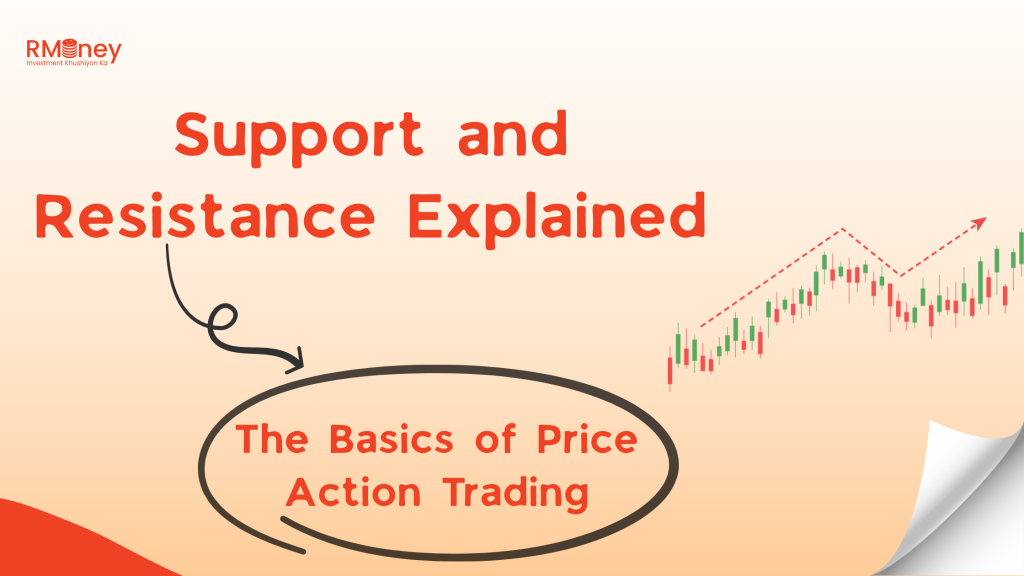In order to trade like an expert, it is very important that you understand market orders well. With such knowledge, you must not owe to worry to trade in any of the market segments. Whether it is stock market, derivatives market, commodities market or a currency market in India.
These market orders are nothing but instructions used while buying and selling a security in the stock market, bond market, currency market, derivative market, and commodity market. Each order is unique and has a different role to perform.
These orders can be directed to a broker or a trading terminal. Mostly the orders are based on the standardized set of instructions. Let us explore the various types of orders:
Market orders are to buy at current market prices
You must be aware as of now that market orders is an instruction to buy or sell a security immediately at the current market prices. The emphasis on execution is guaranteed while the price of execution isn’t guaranteed.
It is, however, important to note that in heavily traded markets, the price at which the order is executed need not necessarily be the last-traded price of the security.
The market orders will usually take place at or near the current bid or ask price. This one of the most basic kinds of orders and incur a very low rate of commission from any online broker or offline broker.
Limit orders put a price limit on your market orders
As the name suggests, this kind of order is very focussed on price limits. The order to purchase a security at nothing more than a pre-set price, and to sell it at no less than a pre-set price. This pre-set price is the limit. For example, Ravi, an investor, wants to purchase a stock XYZ at a price of INR 150, then he can enter limit orders for this price and the said stock XYZ will be bought at a price which less than or equal to INR 150.
While limit orders can ascertain that you buy stock cheaply, it also comes at a commission. Suppose you buy 100 stocks of XYZ at INR 150 each, your total spending will be INR 15000. On this amount, there will be a commission of 10 paisa, which comes to INR 1500 on the total trade. Hence, your total outflow will be INR 16500 (INR 15000 + INR 1500).
The biggest advantage of the limit order is that you do not have to keep a tab on the stock trends every minute to trade at the right price. Limit orders are just like automating your trading to a great extent. Moreover, the limit orders can be valid until a day, a week or even months.
Market orders on the basis of conditions
Now, there are certain market orders that are based on conditions. This means that the order will be executed only if the particular condition is fulfilled. Let us look at some of these market orders briefly.
A stop order or a stop loss order
This is an order to buy or sell a stock when a particular price is reached. Once that particular price is reached, this order becomes market orders. The particular price at which the order is set is known as the stop price. The main idea behind these stop-loss orders is to limit the losses and protect gains.
There are two kinds of stop orders. They are buy-stop orders and sell-stop orders. The buy-stop order is entered at a price more than the current market price. On the other hand, the sell-stop order is submitted at a price below the current market price.
Stop limit order
The stop limit order is an order where the price of execution is sacrosanct. It means if the stock reaches a certain price, the order will be executed at that price itself. For example, you buy a stock at INR 50 per share and you do not want to lose more than INR 2 per share when you sell it, you can set a stop limit order as INR 48.
So, even if the stock price drops below INR 48, your stock will be sold at INR 48 only. Now, the question arises that what is the difference between stop limit orders and stop loss orders? So, as a matter of fact, there is a stark difference to the plain stop loss order. Wherein the price is at a certain range but not fixed.
Trailing stop loss order
The trailing stop-loss order is submitted with a stop criterion that leads to a dynamic or trailing activation price. The parameter is the percentage change or the absolute rise or fall in the price of an asset. The trailing stop sell orders are entered in order to protect the gains of the trader as well as to minimize the losses.
Let us take an example. Suppose if you want to buy ABC stock at INR 200 per share and set a trailing stop loss at 10% maximum loss. This means the minimum price for selling will be INR 180. So if the price becomes INR 220, then it is good for you.
But if the price moves below, then the minimum selling price will be INR 198 (10% loss at INR 220) instead of INR 180. In this case, the loss that you incur is minimum.
Trailing stop limit order
This is another kind of market orders and quite similar in concept to the trailing stop limit order. However, this order is not just about minimizing losses but also protecting the scope for future gains. There will be a limit to the maximum loss that you will bear, but you have absolute freedom to reap as many gains as possible.
Cover orders
Cover orders are a blend of market orders and stop-loss order. The objective behind this order is to mitigate your risks. The buy or sell order remain market orders. But in this case, you would also have to set a stop-loss price and the limit price.
However, there is a certain amount of leverage that is provided in the cover orders. In trading terms, the leverage is the amount of money that can be borrowed from the broker for placing an order.
Therefore the stop-loss price needs to be within a predetermined range based on the security and the specifications of your broker.
Further to it, there is an advanced version of cover order too. So if a trailing stop loss is added to cover order it becomes bracket orders.
Market orders and limit orders on the basis of the time period
There are certain orders which are valid only for a particular time period. These orders can be market orders or limit orders that are valid from the time the order is entered to the end of the trading day. These orders are also known as a day order or good for day order. Further to it, there are certain orders also which depend on a time frame longer than a day.
Goods-till-date order
Goods-till-date orders are the smart market tool which allows you to buy or sell a stock usually within 90 days at a pre-determined price say for instance at INR 1,700 per share. Let us say if you have stocks of TCS and want to sell it after its quarterly earnings release. This you expect some decline in the IT giant’s global revenue due to tightening of VISA norms in the US and economic crisis in the Eurozone and the US.
As a result, you can see the price of the stock coming down. In this case, you have already set a price at INR 1700 so even if it falls below this price, you can still sell it at INR 1700 itself. You may also choose to extend the goods-till-order date to a fixed date in the future, but this day must also be a market day.
Good-till-canceled order
As the name suggests, good-till-canceled order whether to buy or sell remains in the market only until you cancels it. The validity of good-till-canceled order may be 30-60 days. There can be different policies related to good-till-canceled orders. Therefore you need to check with your broker regarding the details.
One cancels the other order
A one-cancels-the other order is a meaningful risk mitigation tool. This kind of order comes into picture when the orders are made in pairs. It is also called ‘the order cancels the order’. Whenever one order is made, the other gets canceled automatically. This can also be considered as goods-till-canceled order in the longer term.
Let’s suppose you buy 500 shares of XYZ company for INR 1000 each and are bullish on the market. You can set a limit order at INR 1200. However, you also want to limit the losses, hence you fix the stop-loss order at INR 900.
Submitting the one-cancels-the other market orders handles both the scenarios, whether bullish or bearish. It also inculcates a sense of discipline in the trader’s mind.
Immediate-or-cancel order
Immediate-or-cancel order is a kind of order wherein the order to buy or sell security must be immediately made with the broker. If there is any portion of the order that could not be executed, the portion stands canceled.
Suppose you submit an order to buy 500 shares at INR 50 but only 300 shares could be bought, rest of the order for 250 shares remain canceled. This kind of trade with immediate-or-cancel order ensures certainty of order and also enables you to effectively use the remaining portion of the order.
Fill or kill order
Fill-or-kill order is also a kind of immediate-or-cancel order with one major difference. The order has to be made immediately and in full. If it is not executed for any reason, the entire order stands to be canceled. Let us say you want to buy ABC stocks in bulk say 2000 because there is a price correction from INR 500 to INR 450.
The fill or kill order trade ensures that this order is executed at a particular price. If it couldn’t be executed due to whatever reason, the entire order for 2000 shares will be canceled.
All-or-none order
Though all-or-none order is similar to other orders, it is absolutely duration based. These orders can be valid for a full trading day or even more than that.
For example, if you want to buy 200 shares of ABC at INR 50 and the current price is INR 60. You would have to wait until the price falls to INR 50.
The All-or-none order trade remains active until the order is ‘live’. As the name suggests, these orders will either execute in full or will not execute at all.
At the opening order
The shares show significant movement at the beginning of the trading session. At-the-opening order is an instruction to buy or sell a stock placed at the beginning of the trading session.
If this order cannot be executed in full or part as the first thing, then it will be canceled. An at-the-opening order is very useful if you do not have enough flexibility in time to trade.
At-the-close order
As the name suggests, at-the-close orders are market orders to sell the stock at the end of the trading session. The price of selling will be the closing price.
If it isn’t possible to execute the order, it will be canceled. Normally, the at-the-close market orders will take place in the last 60 seconds of trading.
Intraday square-off order
This kind of intraday square-off order needs to be squared off in the very same trading day. Since there is an entire trading day with you, you can benefit from the price fluctuations during the session.
In case, you do not close the open trade on or before 3 pm, the order will square-off or close by default. There is also a higher amount of leverage that you can enjoy on these trades.
Order sends order
This type of order sends order has multiple orders attached to a single order. The single order is the main order. The order sends order is to reduce exposure to risks. Let us say there is the main order to buy 200 shares while buying 50 shares of another company.
At the same time, there may be another order which is a limit order. Such limit orders might associate with the primary order.
This way we see that you can link multiple orders to a single order. However, these orders get an execution in the set or series. But the execution only takes place after the execution of the primary orders.
Iceberg order
This is indeed a very unique kind of order. As the name suggests, only a part of the iceberg order is visible in the system. Plus, the system hides automatically a large part of such orders within the system. Only the visible part of the orders get preference in the stock exchange, the remaining parts do not.
The iceberg order is suitable for the institutions whose not only wish to purchase huge volumes of shares but hide a big portion of it.
Seasoned traders of NSE and BSE or MCX and NCDEX can distinctly identify iceberg orders from other orders and submit their order before it so as to take arbitrage related benefits.
As a trader why you must know your orders well?
As a stock market trader, it is important that you know your orders very well. Not only the stock market, but these orders are also useful even for commodities and currency trading.
Such depth knowledge will give you the confidence to trade in the market with ease.
A piece of good understanding of the various types of orders will additionally help you to maximize your profits. Knowing market orders features precisely will help limit your losses too.
Rmoney India is one such broker who has the privilege to offer such a broad variety of market orders to their clients you can bank upon.

Stock Trading Now trade in ₹9 Per Order or ₹ 999 Per Month Plans.
Future & Options Access F&O contracts with advanced tools for hedging and speculation.
Currency Trading Trade in major currency pairs and manage forex exposure efficiently.
Commodity Trading Diversify Trading with MCX & NCDEX by Trading in Gold, Silver, Base Metals, Energy, and Agri Products.
Margin Trading Funding Boost your buying power with upto 5X, Buy now Pay Later
Algo Trading Back test, Paper Trade your logic & Automate your strategies with low-latency APIs.
Trading View Leverage Trading View charts and indicators integrated into your trading platform.
Advanced Options Trading Execute multi-leg option strategies with precision and insights.
Stock Lending & Borrowing Earn passive income by lending stocks securely through SLB.
Foreign Portfolio Investment Enable NRIs and FPIs to invest in Indian markets with ease and compliance.
IPO Invest in upcoming IPOs online with real-time tracking and instant allotment updates.
Direct Mutual Funds 0% Commissions by investing in more than +3500 Direct Mutual Fund Scheme.
Corporate FDRs Earn fixed returns with low-risk investments in high-rated corporate fixed deposits.
Stocks SIPs Build long-term wealth with systematic investment plans in top-performing stocks.
Bonds & NCDs Access secure, fixed-income investments through government and corporate bond offerings.
Depository Services Safely hold and manage your securities with seamless Demat and DP services with CDSL.
Journey Tracing our growth and milestones over time.
Mission & Vision Guided by purpose, driven by long-term vision.
Why RMoney Platform Smart, reliable platform for all investors' needs.
Management Experienced leadership driving strategic financial excellence.
Credentials Certified expertise with trusted industry recognition.
Press Release Latest company news, updates, and announcements.
Testimonials Real client stories sharing their success journeys.
7 Reasons to Invest Top benefits that make investing with us smart.
SEBI Registered Research Trusted insights backed by SEBI-compliant research.
Our Technology Advanced tools enabling efficient online trading.
Calculators Access a suite of smart tools to plan trades, margins, and returns effectively.
Margin Calculator Instantly check margin requirements for intraday and delivery trades.
MTF Calculator Calculate MTF funding cost upfront to ensure full transparency before placing a trade.
Brokerage Calculator Know your exact brokerage charges before placing any trade.
Market Place Explore curated investment products and trading tools in one convenient hub.
RMoney Gyan Enhance your market knowledge with expert blogs, videos, and tutorials.
Performance Tracker Track our research performance with full transparency using our performance tracker.
Feedback Share your suggestions or concerns to help us improve your experience.
Downloads Access important forms, software, and documents in one place.
Locate Us Find the nearest RMoney branch or service center quickly.
Escalation Matrix Resolve issues faster with our structured support escalation process.
Back Office Log in to view trade reports, ledger, and portfolio statements anytime.
Account Modification Update personal or bank details linked to your trading account.
Fund Transfer Transfer funds instantly online with quick limit updation to your trading account.
Bank Details View our registered bank account details for seamless transactions by NEFT, RTGS or IMPS.
How to Apply IPO Step-by-step guide to apply for IPOs using your trading account.
RMoney Quick Mobile App Trade on-the-go with our all-in-one mobile trading app.
RMoney Quick login Quickly access your trading account through the RMoney Quick web-based trading.
RMoney Rocket Web Version Experience powerful web-based trading with advanced tools for algo traders.
RMoney Rocket Mobile Version Trade anytime, anywhere with our feature-rich mobile trading platform.




















